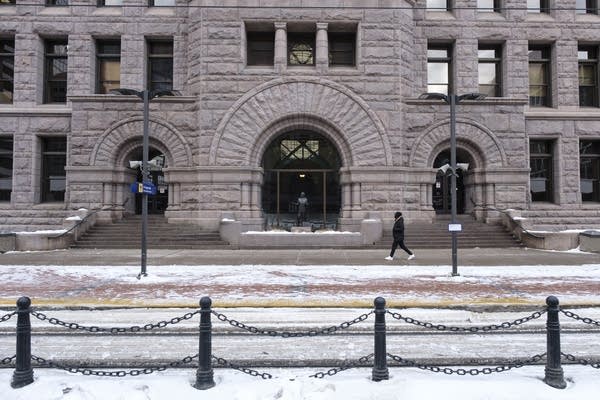Minneapolis council divided over issues of officer liability, preventing threats

A pedestrian walks past Minneapolis City Hall on Feb. 8.
Tim Evans for MPR News
Go Deeper.
Create an account or log in to save stories.
Like this?
Thanks for liking this story! We have added it to a list of your favorite stories.


